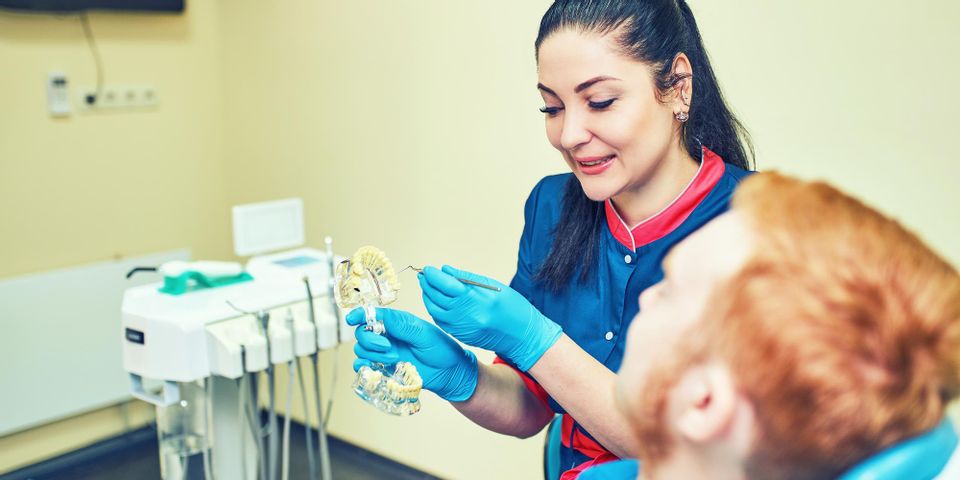
Periodontal disease is an infection of the soft tissue of your gums. When not promptly treated by a dentist, it can lead to damage of the bone supporting your teeth and risk tooth loss. To help you maintain your oral health, here’s how to identify and treat this condition.
What You Should Know About Periodontal Disease
What Causes Periodontal Disease?
Periodontal disease is caused by plaque, a sticky substance created from the bacteria, mucus, and other particles in your mouth. Since brushing and flossing get rid of plaque, poor oral hygiene is one of the most common reasons people get periodontal disease. Other risk factors include smoking, genetics, certain medications, hormonal changes, and illnesses like cancer, HIV, and diabetes.
What Are the Types of Periodontal Disease?
There are three main types of periodontal disease:
- Gingivitis: As the first stage of periodontal disease, gingivitis typically makes the gums red, tender, swollen, and susceptible to bleeding.
- Periodontitis: At this stage, the plaque hardens into tartar, a harmful substance that can only be removed by a dentist. Tartar causes the gums to recede and makes them more irritated and inflamed. A patient may also experience slight to moderate bone loss.
- Advanced Periodontitis: At this stage, the gums and bones become more damaged, causing the teeth to loosen and possibly fall out. A patient may also experience moderate to severe bone loss.
How Is Periodontal Disease Diagnosed & Treated?
 To diagnose periodontal disease, a dentist uses a small instrument called a periodontal probe to measure the spaces between the teeth and gums. If the distance is more than three millimeters, a patient likely has periodontal disease. To determine the stage, the dentist will evaluate factors such as inflammation, bleeding, and tooth mobility. The dentist may also take x-rays to check for bone damage.
To diagnose periodontal disease, a dentist uses a small instrument called a periodontal probe to measure the spaces between the teeth and gums. If the distance is more than three millimeters, a patient likely has periodontal disease. To determine the stage, the dentist will evaluate factors such as inflammation, bleeding, and tooth mobility. The dentist may also take x-rays to check for bone damage.
Treatment will depend on the stage of the disease. If a patient has gingivitis, the dentist may simply perform a cleaning and recommend ways to improve oral hygiene. At more advanced stages, a patient often needs one or more deep cleanings that involve scaling (the removal of plaque and tartar from periodontal pockets) and planing (the smoothing of root surfaces to help the gums heal and reattach to the teeth). The dentist may also prescribe mouth rinses or medications to reduce pain and promote healing. A few weeks or months after finishing treatment, the patient will attend a follow-up appointment to ensure their gums are healing as expected.
To keep your gums healthy and strong, turn to Nayaug Family Dental in South Glastonbury, CT. For more than 35 years, Dr. Brian Chiffer and his caring team have provided personalized dental care to people of all ages throughout this Hartford suburbs. Dedicated to patient comfort, the dentist treats mild to severe periodontal disease with scaling and root planing and offers thorough cleanings to prevent the disease from returning. Learn more about their services online, and call (860) 633-6167 to schedule an appointment.
About the Business
Have a question? Ask the experts!
Send your question

